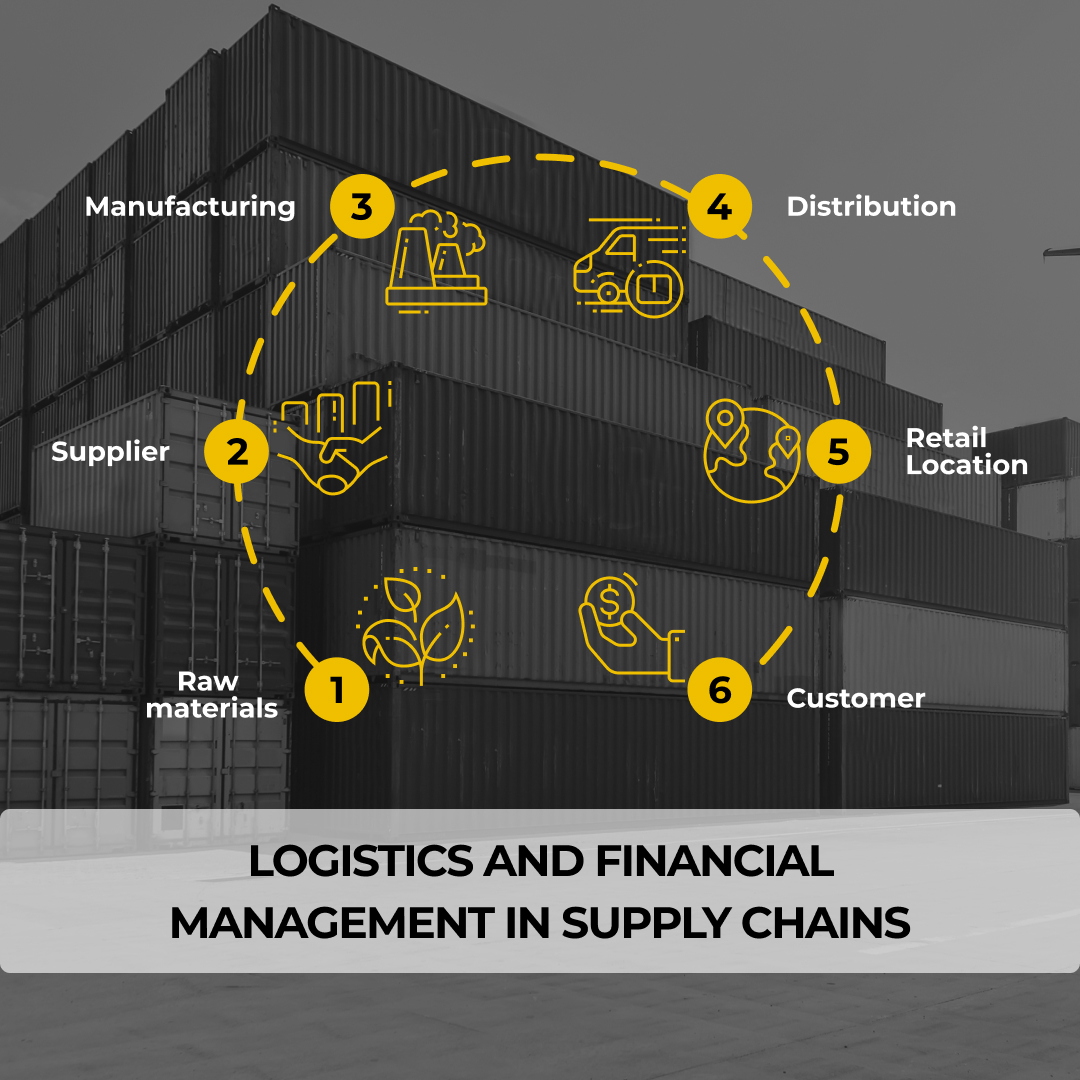Effective supply chain management is essential for the success of any business. It involves the efficient flow of goods and…

Logistics and Financial Management in Supply Chains
Effective supply chain management is essential for the success of any business. It involves the efficient flow of goods and services from suppliers to consumers, and this process is heavily reliant on logistics and financial management. In this text, we will delve into the critical aspects of logistics and financial management in supply chains.
Logistics in Supply Chains
Logistics encompasses the planning, implementation, and control of the flow of goods and services. It plays a pivotal role in supply chain management by ensuring that products are delivered to customers on time and at the right cost. Here are some key considerations in logistics:
Transportation: Choosing the appropriate mode of transportation is crucial. Air, sea, road, and rail transport each have their advantages and costs. Companies must optimize their transportation choices based on factors like distance, time, and the nature of the goods.
Inventory Management: Balancing the need for safety stock with the cost of holding inventory is a logistics challenge. Efficient inventory management ensures that there are enough products in stock to meet demand while minimizing carrying costs.
Warehousing: Warehouses act as hubs in supply chains. They should be strategically located to reduce transportation costs and provide efficient storage and order fulfillment capabilities.
Information Flow: Real-time data is essential for logistics. Advanced technology, such as GPS tracking and inventory management software, allows for better visibility and control of products in transit.
Reverse Logistics: This aspect focuses on the return of goods, recycling, and waste management. Proper management of reverse logistics can reduce costs and environmental impact.
Financial Management in Supply Chains
Financial management in supply chains involves allocating and managing funds to ensure that the logistics processes are executed effectively. Here are key financial considerations:
Cost Analysis: Accurate cost analysis is essential. Businesses need to understand all costs associated with the supply chain, including transportation, warehousing, and inventory carrying costs. This information helps in making informed decisions.
Budgeting: Developing a supply chain budget is crucial for financial planning. It allows a company to allocate resources efficiently and set realistic financial goals.
Supplier Payment Terms: Negotiating favorable payment terms with suppliers can improve cash flow. Extending payment terms can free up working capital.
Working Capital Management: Efficient working capital management is vital. Companies should strive to reduce excess working capital while maintaining the ability to meet operational needs.
Risk Management: Identify and mitigate financial risks in the supply chain. This includes currency fluctuations, supplier disruptions, and demand variability. Employ financial tools like hedging and insurance to manage these risks.
Performance Metrics: Establish key performance indicators (KPIs) to measure the financial performance of the supply chain. Metrics like the cost-to-serve ratio and inventory turnover provide valuable insights.
In conclusion, logistics and financial management are inseparable components of successful supply chain management. A well-optimized supply chain can lead to cost savings, improved customer satisfaction, and a competitive advantage in the marketplace. By continuously assessing and improving these aspects, businesses can adapt to changing market conditions and ensure their long-term sustainability.
Our latest posts
Our latest posts

Logistics and Financial Management in Supply Chains

Supporting the Personal and Professional Growth of Expeditors through Continuous Learning and Skill Development
In the modern world of logistics and transportation, expeditors play a pivotal role in ensuring the efficient delivery of goods…

Оrganization of Goods Storage and Inventory Management in Warehouses
Efficient goods storage and inventory management are critical aspects of any successful warehouse operation. They directly impact a company’s ability…















